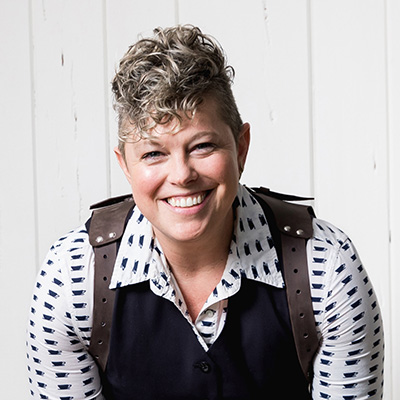First published in Fast Company on 08.16.24
As founders and leaders, our relationship to money impacts the decisions we make for ourselves and those we lead. If money feels crunchy or there’s discomfort around power, pleasure, giving, and receiving, we may want to explore some new practices to transform that relationship.
As a trauma-informed leadership coach and author of Heal to Lead, my clients often address their money wounds as part of our work together. False narratives and self-limiting beliefs come with misunderstandings about one’s value, self-worth, and work ethic. What we project onto others impacts our bottom line, our ability to retain talent, interactions with clients and investors, and our personal relationships.
Recently, I interviewed Candis Fox, a financial wellness and integrity coach based in the greater Seattle area, to gain deeper insight into what can help heal these early wounds. Whether you grew up with the privilege of generational wealth, food insecurity, or somewhere in between, having a practice can both regulate the nervous system in the short term and anchor integrity with money in the long term.
“Wealth is our capacity to nourish ourselves and others,” said Fox. “When we view money, in particular, through a scarcity mindset, we lose sight of its true purpose—to facilitate the giving and receiving that allows life to flourish.”
The following four tools can help you create a more empowered relationship to money. Effectively, these can unblock self-limiting beliefs and get you back in integrity with your financial flow.
WHAT DO I HAVE?
For some people, especially those who are marginalized and don’t have a reference point for growing up with money, it can be difficult to focus on having versus what we lack. In reality, we all have quite a bit—if we consider that our pool of wealth includes our talent, connections, (emotional) intelligence, supportive relationships, voice, physical energy, financial resources, and more. We can leverage these to our own benefit and share with others—and make more money in the process. Wealth is a byproduct of having and choosing a healthy relationship to money.
The Practice: Asking for more of what you already have can build more wealth. For example, if you feel anxious about buying something new, you are not practicing having it; you’re only calculating fear. When buying something you deeply desire, check in with yourself to see if having the thing is aligned with your values and feels good in your body.
Takeaway: Trust that asking for more of what you already have will get you what you need.
WHAT WAS YOUR FIRST MEMORY OF MONEY AND HOW DID IT MAKE YOU FEEL?
Each of us learned how we should have a relationship to money through the lens of our caregivers’ experiences. If they worked tirelessly and prioritized productivity over health and wellness, we believe that narrative is ours as well. The stories we inherit are very powerful, and if we keep making unsustainable choices, then it will be more difficult to receive what we want.
The Practice: Write the story in one line. “Money is for ___________________, and [my role in that is __________________].” (For example, money is a way to manipulate others, and I want nothing to do with it. Or, money is for sharing with other people, and I want to contribute to others’ ability to receive.)
Takeaway: Reframe the narrative you inherited by rewriting beliefs that no longer serve you.
WHAT ARE YOUR JUDGMENTS OF OTHERS AND HOW THEY USE MONEY?
When we project onto others the parts of ourselves we don’t want to own, those are our shadow sides talking. For example, some people will never give money to people on the street because they believe it will be used for drugs or alcohol; the judgment is that others will not use money well.
On the other end of the spectrum, we may judge wealthy people for having everything taken care of and not needing anything from others. These judgments are projections of our feelings: ”I don’t trust myself to make good financial decisions.” Or, “I don’t need anything from anyone.”
The Practice: State what you dislike about money for yourself or others—and then state the exact opposite. For example, “I dislike that I don’t have enough money.” And the opposite, “I love being financially disempowered because I don’t have to take responsibility for making monetary decisions, and I can also blame others when their decisions don’t pan out.” By voicing the opposite, you shine a light on your shadows.
Takeaway: Embrace the projection and discomfort around money.
WHAT IS YOUR RELATIONSHIP TO CONTROL?
I offered five questions to help determine if you’re a people-pleasing leader. On the opposite end of the spectrum of trauma-based leadership styles is people-controlling. People will either give you power and control or you will create it for yourself. Very few people talk about the fact that you have to consent to that in the first place.
The Practice: Ask: Do I want everything that comes with control? In other words, what am I saying yes to and is that in alignment with my personal values? Money can be a tool to exert control, but it can also facilitate freedom, generosity, and service with, and only with, consent.
Takeaway: Get clear on your yes’s and no’s about power dynamics enabled by wealth. Operate from conscious choice rather than unconscious patterns.
Rinse and repeat. As you uncover and transform old narratives and beliefs, your relationship to money will become healthier and more empowered. This work is deeply personal and can catalyze profound shifts, but it requires curiosity.
Don’t be discouraged if money wounds run deep. Healing is a journey. By developing awareness around your inner stories, judgments, and patterns, you begin to operate from a place of choice rather than being controlled by unconscious conditioning. An empowered relationship to money is not only financially savvy but psychologically liberating. It allows you to fully embody your values.




0 Comments